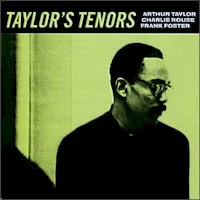Time: 32:19
Size: 74.0 MB
Styles: Bop, Trumpet jazz
Year: 1954/1990/2011
Art: Front
[4:09] 1. Daahoud
[3:48] 2. Finders Keepers
[3:13] 3. Joy Spring
[3:37] 4. Gone With The Wind
[4:12] 5. Bones For Jones
[3:13] 6. Blueberry Hill
[4:12] 7. Tiny Capers
[2:56] 8. Tiny Capers
[2:55] 9. Gone With The Wind
Baritone Saxophone – Bob Gordon; Bass – Carson Smith (tracks: 4 to 8), Joe Mondragon (tracks: 1 to 3); Drums – Shelly Manne; Piano – Russ Freeman; Tenor Saxophone – Zoot Sims; Trumpet – Clifford Brown; Valve Trombone – Stu Williamson. Recorded at Capitol Recording Studios, Los Angeles in July (#1-3) and August (#4-8) 1954. #8 does not appear on LP configuration and was originally issued on Pacific Jazz (JWC 500). #1-7 were originally issued on 10" LP - PJ19 and later 12" LP - PJ3.
Clifford Brown recorded this album in 1954 in California with a great band, including Zoot Sims on Tenor Sax and Russ Freeman on Piano. Clifford Brown was a masterful trumpet player at a very young age and soon achieved a high stature in the jazz world in the early 50's. He played with Charlie Parker and Tadd Dameron, as well as leading his own bands. I think this recording is one of his best, with original songs and arrangements done by Jack Montrose. Clifford Brown's alternatively sweet, tough and complex trumpet playing integrates wonderfully with Zoot Sims saxophone. The song 'Tiny Capers' is a brilliant excursion in jazz improvisation and playfulness, while retaining a beautiful melody. ~Jostein Berntsen
Clifford Brown recorded this album in 1954 in California with a great band, including Zoot Sims on Tenor Sax and Russ Freeman on Piano. Clifford Brown was a masterful trumpet player at a very young age and soon achieved a high stature in the jazz world in the early 50's. He played with Charlie Parker and Tadd Dameron, as well as leading his own bands. I think this recording is one of his best, with original songs and arrangements done by Jack Montrose. Clifford Brown's alternatively sweet, tough and complex trumpet playing integrates wonderfully with Zoot Sims saxophone. The song 'Tiny Capers' is a brilliant excursion in jazz improvisation and playfulness, while retaining a beautiful melody. ~Jostein Berntsen
Jazz Immortal





















